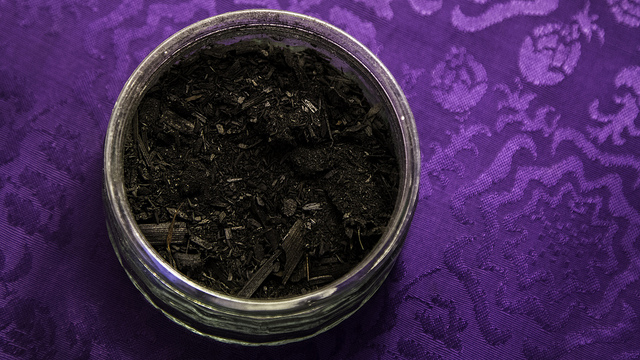A friend called recently to tell me she’s going through a difficult divorce. Everything she thought she had, she said, has crumbled around her. Her pastor husband confessed to twenty-plus years of infidelity, but only after being found out and confronted by the church. We talked at length about healing after divorce, about recovering one’s identity in Christ, about regaining inner peace. At one point during our conversation, my daughters ran past where I was sitting, laughing and yelling, and my friend said, “Hearing your kids is so good. It reminds me that God restores.”
Indeed, he does. And it’s important for me to be reminded of that. He heals, he protects, he restores. I waited over a decade for the family I now have, steeped in loneliness that, certainly, God was using to shape me. But it wasn’t always easy to see that in the moment. And now, even though I’ve been claiming the promise of Joel 2:25 as my own for over a decade, I struggle with another enemy: anxiety.
I don’t know exactly when anxiety crept up on me, but if I had to put a finger on it, I’d surmise it began years ago, when my oldest was a newborn. Shades of postpartum depression? Perhaps. I only know that I’ve imagined every possible crisis, every injury, every trauma that could befall my children, whether rational or not. Situations that had never felt stressful before suddenly were, and they were punctuated by very real physical pain that streaked across my breastbone. A visit to my doctor left me stunned. “Situational anxiety,” he’d said, after thoughtfully having me recount for him all the changes in my daily life. Anxiety triggered by situations in which a loss of control is possible.
We live in an uncertain world, it’s true. A family I know only through Instagram has spent three years praying for the healing of their daughter after a freak fall that left her with a traumatic brain injury. How does anxiety enter into such a space? When the desire to pray for the life of that precious girl is eclipsed by visions of something similar happening to my own daughter, I have to inwardly turn away from them. The hallmark of my anxiety is intrusive thoughts. It steals the life, the focus, the good from everything else.
The roar of my anxiety became fully audible after a car accident. I was driving, and my girls were in the backseat. In the months that followed, there were moments when I felt like my body had been seized by something foreign, something terrifying. For weeks, every time I closed my eyes, the scene replayed itself in my mind. I couldn’t sleep without help. Three years later, driving still unsettled me. There were even days when I’ve thought, “It would be easier just to stay home,” but I know that’s not a road I want to, or should, choose. God asks us to push through. He asks us to trust him, even in the face of every kind of earthly uncertainty. This is the dance we must enter into if we are to combat anxiety with faith. We must recognize the anxiety and step out anyway. We must seek help if we need it. Eventually, it all became more than I could do on my own, and my kind GP said to me, “I think it’s time to get you a little help.” What a relief it was to acknowledge that, even as a Christian, I don’t have to fight on my own. Other people, even a good health professional, can be the hands and feet of Jesus in battling our demons.
I’ve had to learn, too, that my anxious thoughts are just thoughts. Counseling has assisted me in righting my focus to some degree. Books, essential oils, meditation, yoga–there are many helpful practices besides medication, and it’s good to have a toolbox filled with physical, mental, and spiritual scaffolds, as well as the pharmaceutical kind. When anxiety threatens, when my brain goes rogue and imagines the worst, I say to myself, “It’s just a thought. Let it go.” It’s not always that simple or easy, but the practice of reminding myself that the anxious thought is only a thought is always a good first step for me. The promises in Scripture are some of the best tools. We must “take every thought captive,” it says.
“Give all your worries and cares to God, for He cares about you.” (1 Peter 5:7)
“Don’t worry about anything; instead, pray about everything. Tell God what you need, and thank him for all He has done.” (Philippians 4:6)
“When doubts filled my mind, Your comfort gave me renewed hope and cheer.” (Psalm 94:19)
I don’t have all the answers to living well with anxiety. And I wonder sometimes if the fearless twentysomething I used to be, the one who backpacked Europe by herself without thinking twice, is gone forever. I do know that God doesn’t want us to live fearfully, assigning ourselves a fate like Job’s. He wants us to receive his blessings. He wants us to be strong and courageous. He wants us to live lives of love rather than quiet desperation.
After the car accident, I bought a St. Christopher medal and clipped it onto my visor. I’m not a Catholic, and I don’t look at it as a talisman, but it serves as a reminder that God is with me every time I venture forth. It reminds me that I can trust him. As St. Christopher carried the Christ–and thus, the weight of the world–so God carries us, bearing our fears and burdens, and even our anxious thoughts, if we will let him.
A version of this post was originally published at The Glorious Table.


